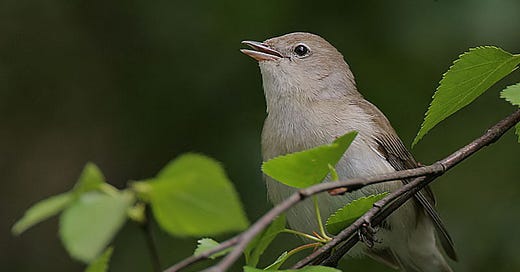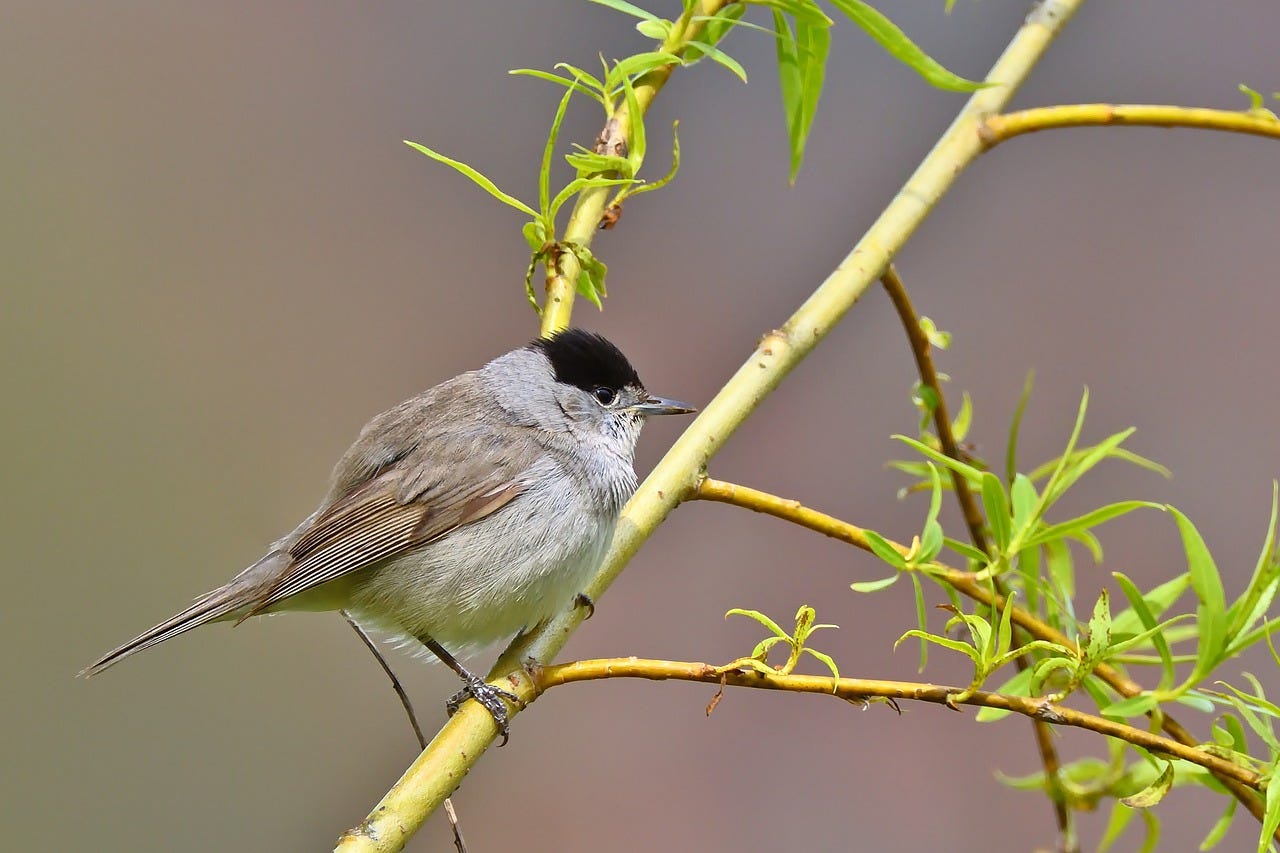Imagine being told that your only distinguishing visual feature is that you have no distinguishing visual features. Hurtful stuff.
But it’s quite a useful guide when applied to the garden warbler. On first look they appear to be an unfinished model of ‘generic small bird’, to which interesting eye stripes, wing bars and a dash of colour are yet to be applied.
However, like the nightingale, garden warblers hardly need bother with visual aesthetics because they have a wonderful song. And each spring thousands of us will cock our ears to it while asking ourselves: ‘Is that a blackcap?’
Garden warblers and blackcaps sound very much alike. Both make a rapid rushing warble, often from thick cover.
The garden warbler has a reputation as the slightly less accomplished of the two.
With sustained listening, we can notice that it lacks the flutey variation of the blackcap, being buzzier and more babbling. While blackcaps tend to be dramatic and relatively brief, garden warblers are chattier and can go on a bit.
Another useful clue is the difference between their alarm calls. Blackcaps have a sharp ‘tak!’ that they throw in freely between bursts of song, whereas garden warblers have a raspier ‘chet’, that to my ear has something of the chicken about it.
Garden warblers are also rather poorly named in the English language. They’re unlikely to be found in anything other than the biggest and most rambling of gardens, as their preferred habitat is thick scrub and coppiced woodland.
These are the groves to which they return in late April, and from where they will sing until midsummer, before quietly disappearing back south to Africa in the early autumn.
Unlike their blackcap cousins, they have not developed a taste for British winters or garden bird feeders, but in southern Europe they are known for their love of ripe figs; indeed they’re are called ‘fig warbler’ in Portugal. And in late summer they may be found with the purple juice staining the feathers around their bill, which is one way to add that dash of colour.
Compare with: Blackcap
Upcoming events from Birdsong Academy
On Saturday we are Up With The Birds for an early hour on Zoom - free to all, just sign up for access.
Thanks as always for your comments, messages and support.
If you’d like to receive a narrated version of each Shriek, as well as access to the monthly subscriber Zoom call, you can sign up from a £25 a year (or just try it for £5 a month).
Is there a bird you would like to hear featured? Suggest one in a comment below (and remember you can see an A - Z of all species featured so far).
See you next week.
~ Charlie





